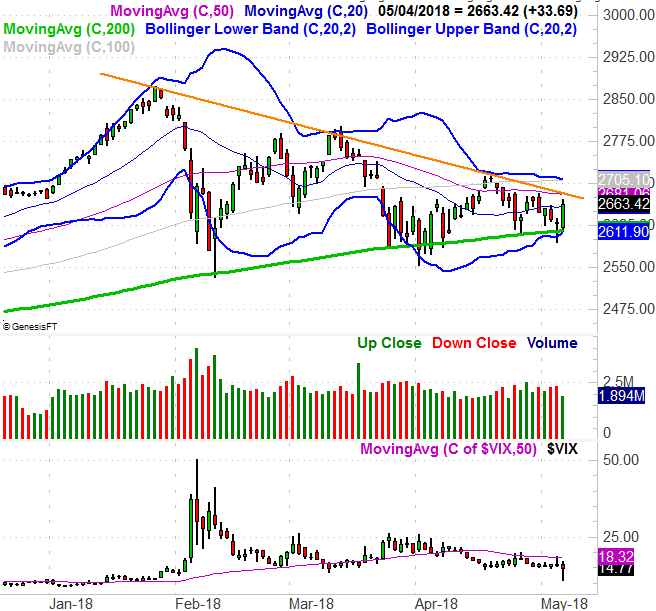
Stocks may have logged a small loss last week, but it could have been worse. Much worse, in fact. For a couple of hours on Thursday the key indices were below some pivotal support lines. They ended up reversing their intraday losses, setting up a nice gain on Friday that pushed us back to what was almost a breakeven for the week.
Still, we’re within easy reach of that technical support level. One bad day could drag stocks back under it, and the next time around the bulls might not be so quick to fight back. And, for the record, Friday’s big bounce was nowhere near as healthy as a superficial look at it would suggest.
We’ll dissect all the details below – as always – but first let’s run down last week’s and this week’s economic news. April’s jobs report, posted on Friday, was uncomfortably strong, and this week we’ll round out the other factor the Fed’s looking out when it comes to making a decision on interest rates…. inflation.
Economic Data
Last week was chock-full of data. As expected, both of the ISM indices fell in April after a huge March. And, both fell more than expected. Each remains above the key 50 mark though, suggesting the economy is still in growth mode.
ISM Index Charts

Source: Thomson Reuters
Another drop like April’s could be a more concerning red flag, and speaking of red flags.
Investors were celebrating March’s strong automobile sales a month ago, but the industry didn’t exactly dish out an impressive encore. The pace fell to 17.15 million, rekindling a lull that got started early this year. Even truck sales, which had been resilient, are starting to flatten out.
Auto Sales Charts

Source: Thomson Reuters
The show-stopper, of course, was the April jobs report posted on Friday. Unemployment fell to 3.9% of the labor pool… a multi-year record low. We only added 164,000 new jobs, missing estimates for 190,000 new payrolls. But, it wasn’t exactly a failure. Employers are struggling to attract workers, many of which already have other jobs they intend to keep. Wages are growing quite nicely, fanning the flames of economic growth.














Leave A Comment